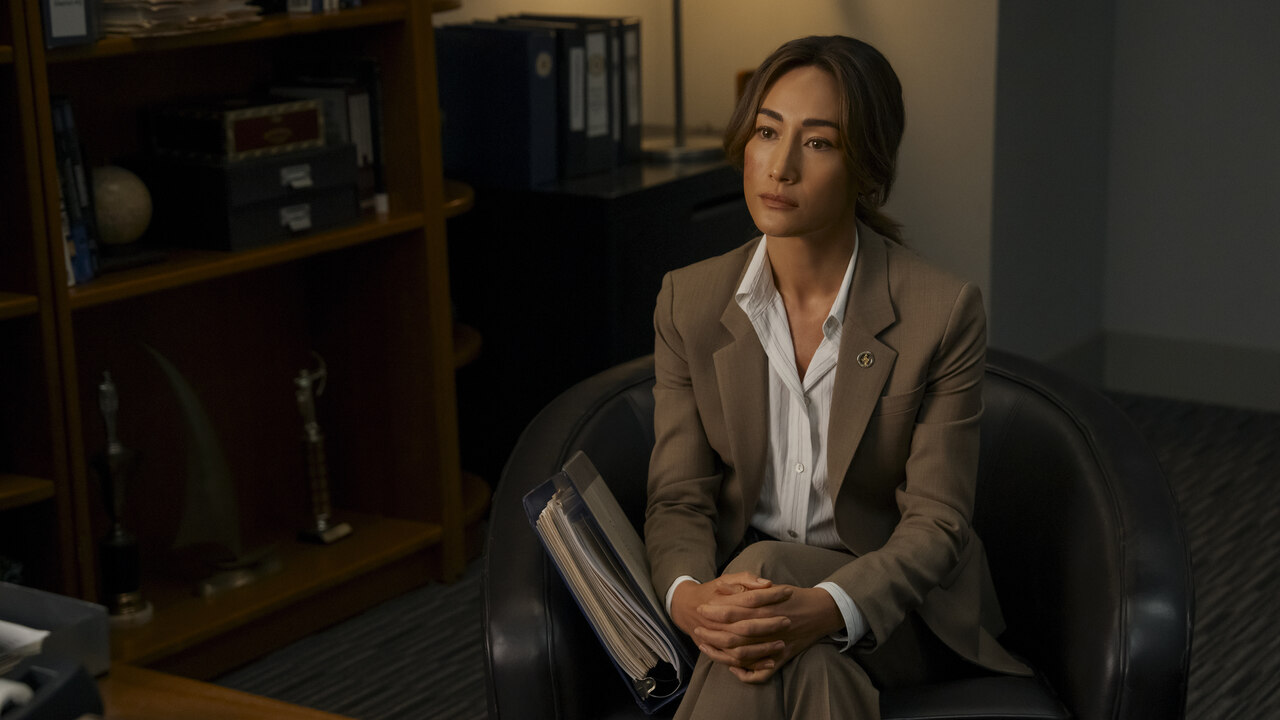
Recently, in May, we got a TV series focusing on a detective and his team, who handle cold cases while working in the basement of their office. I am, of course, referring to Dept. Q, which premiered on Netflix. If you have watched Dept. Q, and if you end up sitting through Ballard, which will be available on Prime Video from July 9, you will surely find some similarities between the two series. Did I mention that both Dept. Q and Ballard are based on successful novels? Even the number of episodes is almost equal (Dept. Q has nine and Ballard has ten). However, the Prime Video police procedural is what I expected the Netflix crime thriller to be: a mix of a season-long serialized arc and episodic cold-case mysteries. Detective Carl Morck and his team dedicated their energies to one case. Detective Renée Ballard (Maggie Q) and her team tackle multiple cases, eventually uncovering the main culprit. Like Carl, Renée is forced to talk to a therapist because she underwent a terrible experience in the past. Her team is also asked to work in the basement; they are underpaid but dedicated. What's more, women are once again the victims, though unlike Dept. Q, Ballard takes this thing to make a Big Point about the society we live in.
Renée is an LAPD officer, and Ballard, through her and another officer, paints an ugly picture of this law enforcement agency. The police department is presented as a powerful Boys Club. A man in uniform sexually exploits his female colleagues, yet continues enjoying exclusive privileges and gets support from other boys. It's almost impossible to avoid spoilers, but let's just say that Renée feels betrayed by the Brothers in Blue. They abandoned her in her time of great need. Samira Parker (Courtney Taylor), too, is repulsed by the corruption within the police department - she's not much of a fan of the LAPD. Nonetheless, both Renée and Samira continue to do their jobs as police officers (the latter returns to action after some motivation); they don't let a few bad men undermine their whole careers. Ballard says that it takes a lot of courage and determination to carry on with your routine after physical and emotional assault. But if you give up on yourself, you will only allow the rot to spread its wings. Get into the system and fight—it's the most effective way to eliminate misogyny from within. Yes, it sounds very cliché, though it's also the truth, right? This is what Renée tells a victim: "When you are abused by a stranger, you don't trust the world. When you are abused by someone close to you, you don't trust yourself." A few episodes later, we meet another group of Brothers, who turn out to have a Body Count book.
Ballard could have used this opportunity to start an All Men Are Dogs Group. It could have committed to this shallow objective with a unidimensional, cartoonish set of evil boys. Ballard, however, has the intelligence to not blame a particular gender. It indicates that some humans are cruel. Renée, after all, is surrounded by smart, sensitive, romantic, and dutiful men, such as Thomas (John Carroll Lynch) and Aaron (Michael Cassidy). The former invites her to stay at his place after she's attacked by an intruder, while the latter gives her a foot massage after she has a long day at work. What all this suggests is that Ballard has a solid emotional core. It should have been gripping, moving, exciting. So why is it so feeble?
The main reason behind the show's downfall is the absence of style. The series is nothing but a collection of shots where the camera simply records the actors delivering their lines. A series or a movie isn't automatically doomed if it chooses to be talky. One of the creators of Ballard is Michael Connelly, whose book The Lincoln Lawyer has given rise to one of the best TV adaptations on Netflix. In The Lincoln Lawyer, the lines have snappy rhythms that accentuate the characters' impressive professional skills. They don't just dispense crucial plot information, but also highlight the family-like environment in which Mickey Haller runs his business with his friends and colleagues. Ballard, on the other hand, is devoid of such liveliness, so the whole series comes across as a huge, heavy, and plain exposition dump. Renée and her team members also become a sort of family. Their relationship, however, remains at a distance, thanks to a limp and a vanilla visual style that merely sees everyone as mouthpieces - as talking heads who merely recite lines written in the script. Ballard probably views its lack of energy, its "soberness," as a sign of dignity. It wants to treat its subject of abuse "seriously." Well, there is a difference between dullness and solemnity. Ballard leans towards the former and loses strong, palpable feelings. The moment where Martina (Victoria Moroles) gets her hands on information regarding her new boyfriend should have stung your nerves or something. The viewer, alas, experiences nothing. There is even no sense of catharsis when the good guys (or girls) win. This show about a Cold Case Unit ultimately proves itself to be cold, impersonal, and weak.
Final Score- [4/10]
Reviewed by - Vikas Yadav
Follow @vikasonorous on Twitter
Publisher at Midgard Times
Hi Everyone, after a due consideration, we have decided that we will be open for donations to help us in managing our website. We will be greatful for any kind of amount we receive. Thanks!
— Midgard Times 🎬 (@Moviesr_net) January 4, 2026
PayPal- [email protected] pic.twitter.com/DlNNz5Npm5
Get all latest content delivered to your email a few times a month.
Bringing Pop Culture News from Every Realm, Get All the Latest Movie, TV News, Reviews & Trailers
Got Any questions? Drop an email to [email protected]